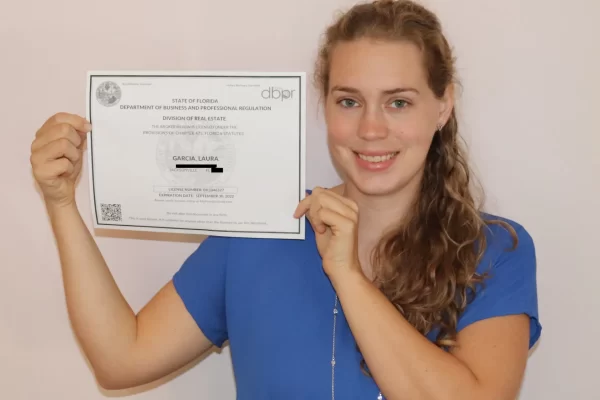Arizona is one of the most popular home-selling states in the country, but it also has some closing expenses that you can’t avoid. The average closing costs in the state are 1% of the sales price, including common charges like title insurance and transfer taxes.
Sellers pay the title insurance and transfer fees, while buyers cover a lender’s title policy, appraisal, home inspection, and loan underwriting. But buyers can ask sellers for concessions to help them offset closing costs, such as a termite inspection or an additional $5,000 to pay for repairs.
Commissions
If you are buying or selling a home in Arizona, it is important to understand how real estate agents earn their commissions. This is because your closing fees can significantly affect your overall home sale price.
Typically, the listing agent and the buyer’s agent earn a commission fee from a home sale. These fees are usually baked into the sales price, and they get paid out of the seller’s net proceeds at closing. The buyer’s agent also gets a commission if they help find a qualified buyer for the home.
The amount that a real estate agent earns depends on many factors, including their experience level and the market. Beginner-level agents tend to make around $24,550 per year, while experienced ones can make as much as $34,594.
Most real estate agents in Arizona are associated with brokerages. This is because it’s easier for them to get clients, and they don’t have to go through the hassle of building up their own network.
In addition, they earn a percentage of the sale price as part of their broker’s compensation package. This can vary by company but is typically a 50/50 split with the broker.
Whether you are buying or selling in Arizona, you can save on your closing costs by working with a reputable broker who offers discounted commissions. This can significantly reduce your out-of-pocket closing expenses, saving you thousands of dollars at the end of the sale.
If you are a home buyer, you can also benefit from getting credit or a rebate on your commission fee at closing. These commission credits are legal in 40 states and can help you save thousands of dollars if you’re a cash-strapped buyer.
Aside from commissions, closing costs can be a major expense for sellers, and it’s important to consider them carefully when deciding how to sell your home. You can reduce closing costs by avoiding costly repairs, paying off your mortgage before the sale closes, and choosing a realtor with a competitive commission rate.
Arizona’s average real estate commission is 5.43%, but it can vary by location and agent. By comparing local agents and pre-negotiating 1% listing fees, you can save on closing costs and keep more money in your pocket at the end of the sale.
Title Insurance
Title insurance is an important component of the real estate transaction, as it protects home buyers and mortgage lenders against damages or financial loss caused by title defects. The most common problems that title insurance covers include ownership disputes, liens, forgeries, and restrictive covenants that were unknown before the purchase.
Before closing, your real estate agent or lender will conduct a thorough title search to verify that there are no outstanding claims against the property. However, not every issue will show up on public records. In some cases, you might discover that the owner of your home is actually the seller’s older sibling, for instance, and this will require a lengthy and costly legal battle.
After the search, your real estate agent or lender will provide you with a Closing Disclosure containing information about any potential costs associated with the closing. This document will also list any fees that are required to be paid by the seller or buyer.
In Arizona, closing costs typically include the cost of homeowner’s insurance. Most mortgage lenders will make this a requirement, so it’s important for you to make sure you have this in place at the time of closing.
You’ll also need to pay for a title search and obtain an owner’s title policy for your new home, which will cover you against any title issues that arise after the sale. This type of coverage isn’t cheap, but it can be a small price to pay if you find out the seller isn’t the legal owner of your home or that years of back taxes are owed.
The costs of title insurance vary by state, and you may want to shop around for a cheaper price. You can also ask your lender or real estate agent if they recommend a particular company to use. These companies are often affiliated with lenders and can offer a lower rate than other providers.
Escrow Fees
When sellers sell a home, they usually pay closing costs to an escrow company. These fees cover various expenses, such as loan origination and processing, appraisals, credit report, attorney fees, courier expenses, and other services.
According to James Wexler, a real estate agent with the Arizona Association of Realtors, closing costs can vary depending on the price of the home. However, he says that they’re no more than 6% of the total sales price in most cases.
In fact, Wexler says closing costs are typically much lower than they used to be for buyers and sellers. He says this is mostly due to the state’s competitive real estate market.
Wexler adds that many of these costs can be avoided if sellers choose to list their homes on a flat fee or no commission real estate website. This allows them to avoid paying high realtor commissions that are typically 6% of the sale price.
Another thing sellers might want to consider is adding a home warranty to the purchase contract. Wexler says this is a great way to help protect buyers from unexpected problems with the property.
Sellers often pay for a home warranty to help cover repairs and replacements to appliances and other house components. The amount sellers will pay for this can be negotiated in the purchase contract.
Other things sellers may want to consider putting in the purchase contract include HOA fees and inspections. Wexler says these can be a good investment for sellers since they can help them reduce their home selling costs.
A buyer’s lender will also usually charge a closing cost. These costs can range from a few hundred dollars to several thousand.
The amount of these costs will depend on the price of the home and the lender the buyer is using. Wexler notes that these costs can be a major factor in determining the net proceeds from the sale.
In addition to these costs, homeowners should also be prepared to pay a recording fee for the transfer of title. This is a local and state government tax that is paid at the time of the sale or transfer of ownership of a home. The fee can be anywhere from $0.50 to $50 per $500 of the home’s purchase price.
Taxes
Taxes can be one of the biggest costs to sellers when it comes to closing on a property. However, the buyer and seller can negotiate some of these fees.
Two types of taxes can affect a home sale: sales tax and use tax. Sales tax is a federal and state tax charged on purchasing goods or services from businesses. The rate varies by state and depends on the goods or services being sold.
The Arizona Department of Revenue (ADOR) requires vendors who have a physical or economic presence in the state to register and remit their sales taxes on taxable purchases. This is called nexus.
In addition to the nexus requirements, sellers also need to know how to calculate taxable income in Arizona. This is done by subtracting deductions and exemptions from gross income.
Itemized deductions in Arizona track closely to federal itemized deductions, so most of the items you can claim as itemized deductions on your federal tax return are also deductible on your Arizona tax return. This includes medical and dental expenses, paid mortgage interest, charitable contributions, and more.
If you sell a home, you’ll need to file a sales tax return with the state of Arizona. You can do this by filing online or by mail. The state’s due dates vary, and you can find out more about the sales tax filing process on their website.
You can also use the TaxJar app to automatically calculate and pay your sales tax for you. It’s free to download and can be used on multiple devices.
Another way to reduce your sales tax is to get a temporary license for selling to Arizona customers while you’re visiting the state. This can be particularly helpful for business trips or for events that you’re attending where you’ll be selling your product.
As with any type of tax, it’s important to ensure you’re paying the right amount to avoid penalties or fines. If you’re unsure which tax to file, ask an experienced tax professional for help.




